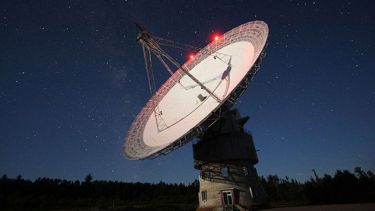Radioastronomy
The discovery of the long Carbon chain Polyynes in space.

These articles review the laboratory microwave and astrophysical radio studies of the polyynes which uncovered the existence of the long carbon chains in the interstellar medium. It was this series of studies which ultimately led to the discovery of the fullerenes in 1985 and later fullerenes in space.
HC9N
The spectra of interstellar molecules
Abstract
This review considers the spectroscopic observations which have led to the identification of more than 50 molecules in the interstellar medium. Although it concentrates on the results of radio studies, mainly because these have up to now been the most revealing, optical and infrared discoveries are also reviewed and placed in perspective.
The radio data yield information about the very cold regions whereas the infrared data yield information about the warmer regions where stars are forming. Optical emission studies can give information about extremely hot regions near stars and absorption studies give information about the cold regions.
The review begins with a historical introduction to the field followed by a brief overview of the interstellar medium and its relationship with other objects in the universe in the second section. The third section is devoted to an understanding of the relevant types of spectra, mainly rotational, and salient astronomical details which pertain mainly to radio observations.
In the fourth section the optical, radio and infrared spectra of various molecules are individually discussed and some of the most important regions where molecules are found are described. The various interstellar chemical pathways currently being actively studied are discussed in the fifth section.
In the final section some of the more important outstanding problems and possible future research avenues are highlighted.
The overall perspective is a spectroscopic one in which the value to chemistry of these studies is deemed as interesting and significant as the value to astronomy.
More information
- , presented at FSU, 2004.
- Tilden lecture, Polyyne section (PDF, 4.23MB)




